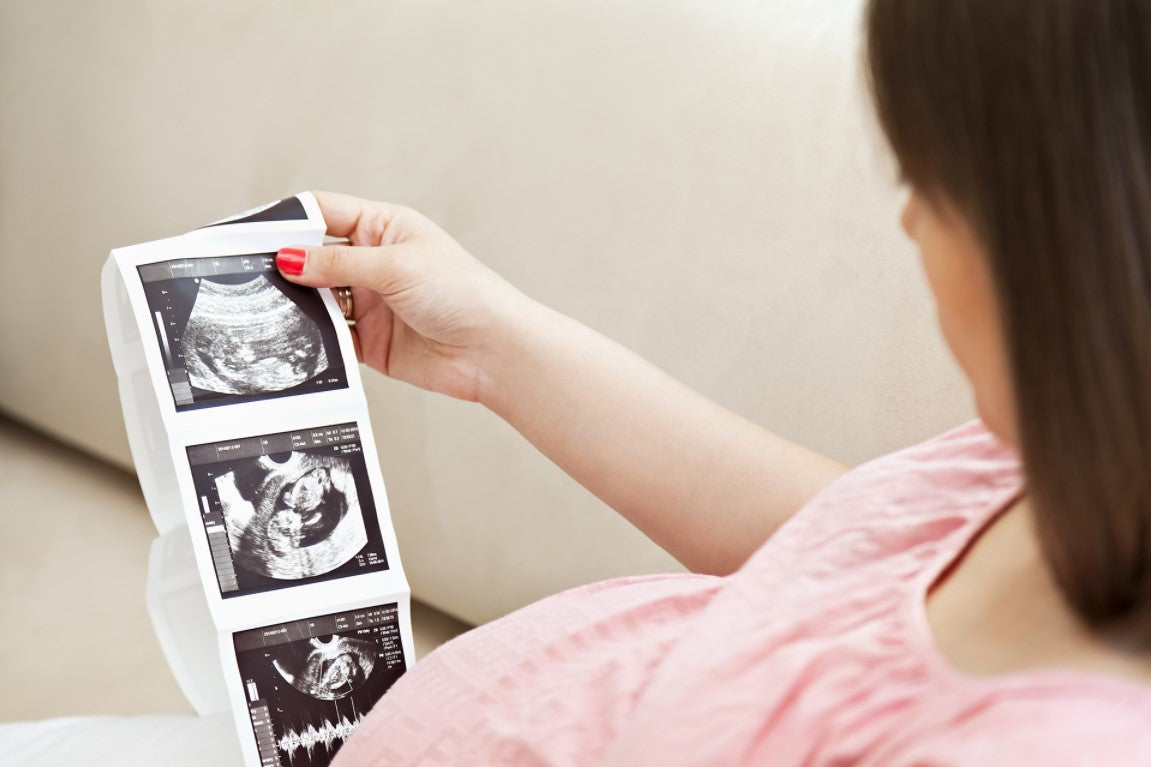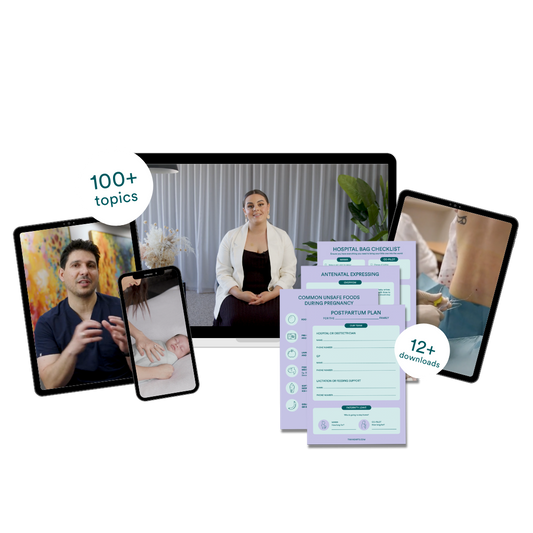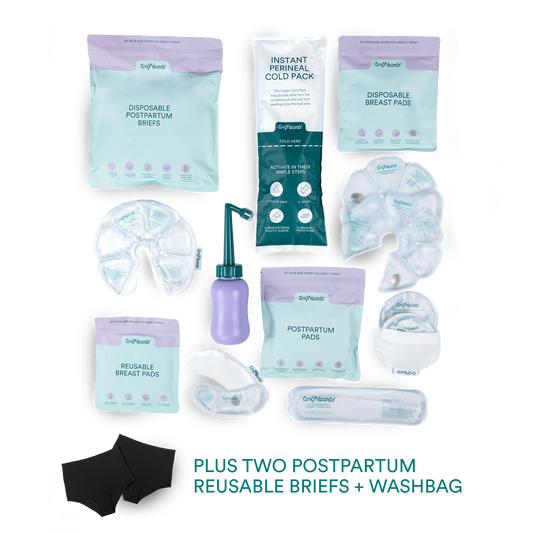
Did you know that pre-eclampsia affects 8% of pregnancies in Australia and is one of the more common complications of pregnancy?
Yep, crazy! Pre-eclampsia can happen at any time during the second half of pregnancy or the first few days after birth. The condition is often characterised by high blood pressure and if left untreated can lead to serious injury, organ failure or even death.
Sounds scary? To be honest, pre-eclampsia can be - which is why we’ve come up with the top 5 things you need to know about the condition!
1. Who is at risk?
Pre-eclampsia can be developed by anyone - even Kim Kardashian had it. However, there are specific groups of women that are at a higher risk of the developing the condition if:
- It’s their first pregnancy
- They already have high blood pressure
- They have a family history of the condition
- They have diabetes
- They are pregnant with twins or so on
2. Signs and Symptoms
Annoyingly, pre-eclampsia has no apparent symptoms, and those who have the condition will mostly feel fine. The only way to diagnosis the condition is by checking your blood pressure regularly during antenatal checks. Some of the early symptoms include:
- A sudden spike in blood pressure
- Protein in your urine
Advanced symptoms pre-eclampsia include:
- Dizziness
- A headache
- Visual disturbances (e.g. flashing lights)
- Abdominal pain below the ribs
- Nausea and vomiting

3. How do you diagnose and treat pre-eclampsia?
As mentioned above, the warning signs of pre-eclampsia are easily missed which is why it’s critical for expecting mother’s to undergo regular antenatal blood pressure checks. Here your doctor will be able to see if you have high blood pressure. If your blood pressure is identified as being 140/90mm Hg or higher they will test for the following:
- Protein in the urine
- Swelling or fluid in your face, feet and hands
- Liver function abnormalities
- Kidney function abnormalities
- Blood clotting abnormalities
- Headaches or visual disturbances If there have been any growth restrictions on your baby - this will be determined by an ultrasound
If you are diagnosed with pre-eclampsia, your doctor will advise on the best course of action for you and your baby. Generally, this will include increased antenatal check-ups to monitor your blood pressure and urine and to discuss any additional symptoms you may be facing. If your condition is severe, you may be admitted to the hospital for further monitoring and treatment. In some circumstances, this stay could be until your little one is born.
Your doctor may recommend you take extra rest, blood pressure medication or anticonvulsant medication. Unfortunately, there is no cure for pre-eclampsia, and the only way to part with the condition is to deliver your baby and placenta.

4. How will it affect my baby?
As you know, your bub’s home for nine months is in your womb, which is attached to the placenta - an organ that provides your baby with oxygen and nutrients from your blood. If you’re suffering from pre-eclampsia, your high blood pressure can limit the amount of oxygen and nutrients being delivered to your baby, which could, in turn, stunt their growth.
Affected growth can threaten the life of the baby or result in them being born early. In Australia, 8% of premature babies are delivered as a result of pre-eclampsia.
5. Will it affect future pregnancies?
It’s time for some good news! The likelihood of you suffering from pre-eclampsia in your second or future pregnancies is generally slim. However, your risk will remain high if you suffer from medical conditions such as diabetes, kidney disease or hypertension.
During future pregnancies, the following signs may indicate a relapse of pre-eclampsia:
- Headaches that cannot be treated by over-the-counter medications (i.e. paracetamol or ibuprofen)
- Blurred vision
- Unusual or sudden swelling in your hands, feet or face
The key thing to remember is that pre-eclampsia can affect anyone, which is why regular antenatal checks are crucial throughout your pregnancy. Pre-eclampsia is common, which means it can be effectively managed by health professionals ensuring good health for both yourself and bub.
For more information on the condition, please chat to your GP, Midwife or Obstetrician for expert advice!
Sources








